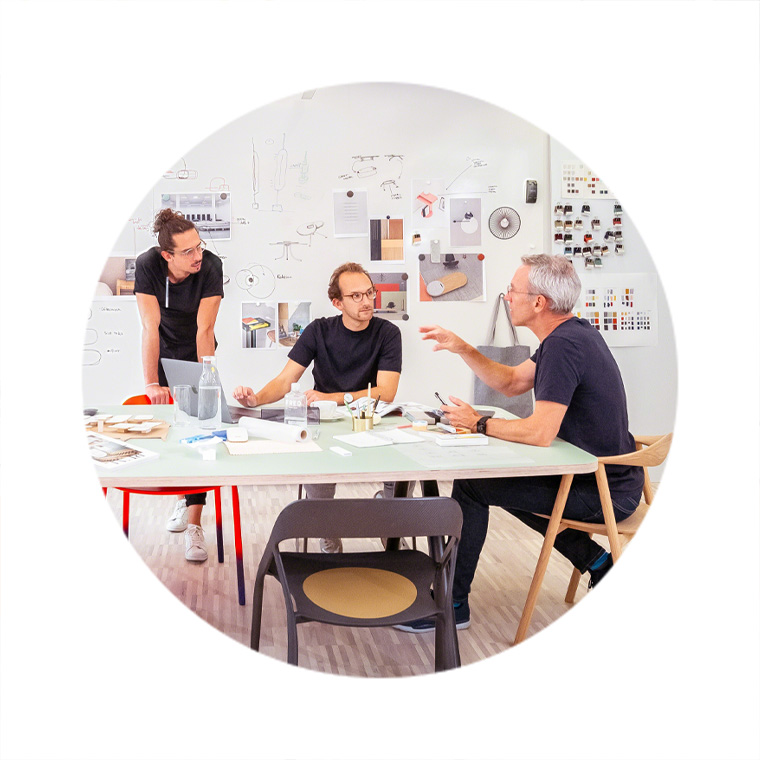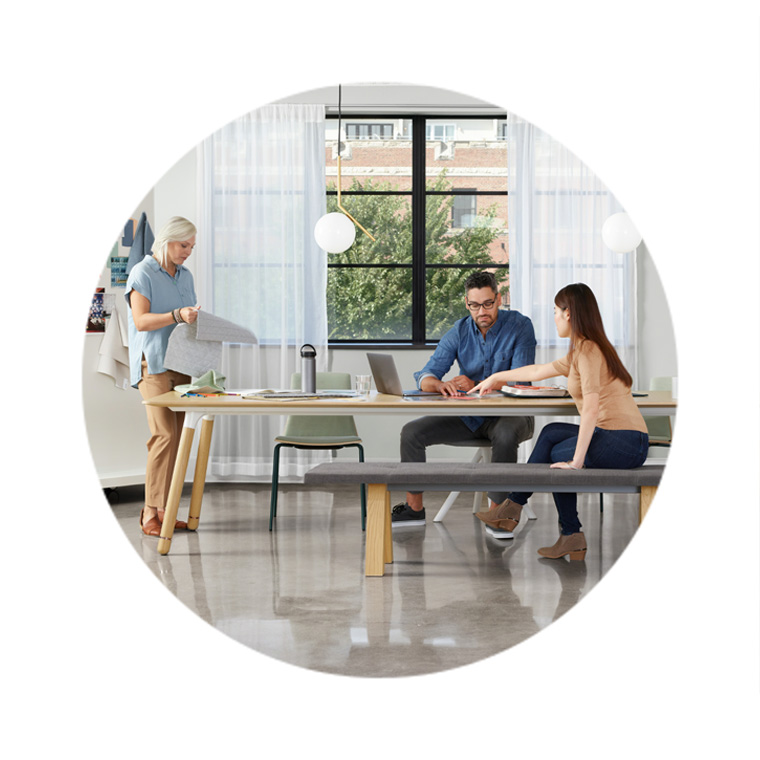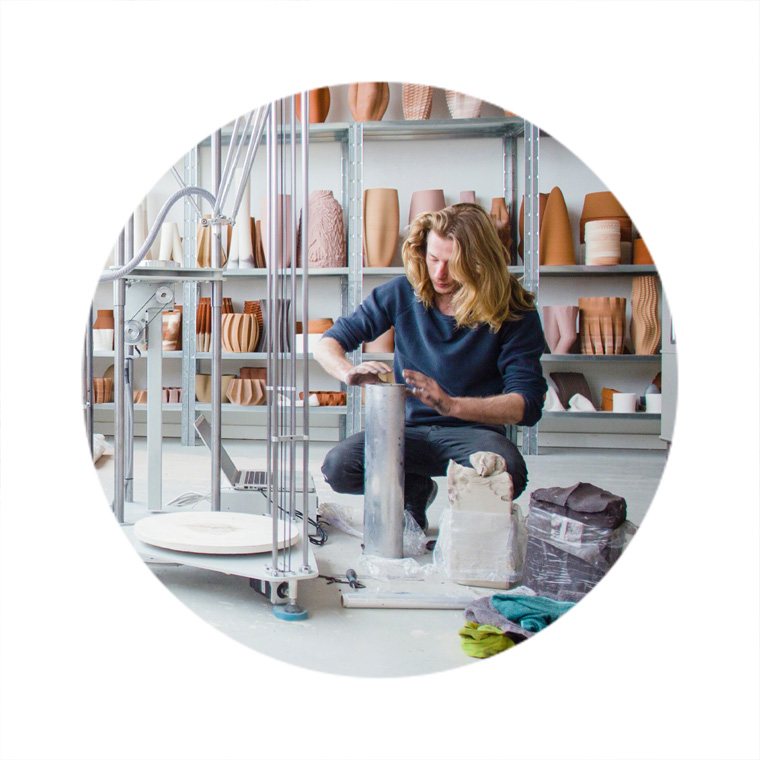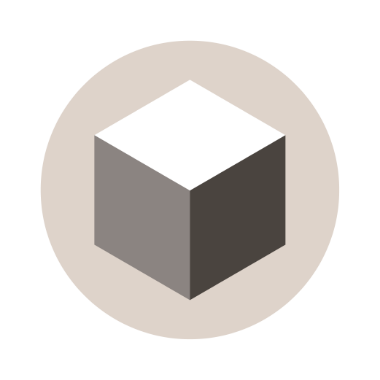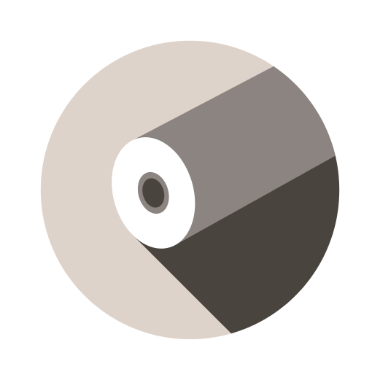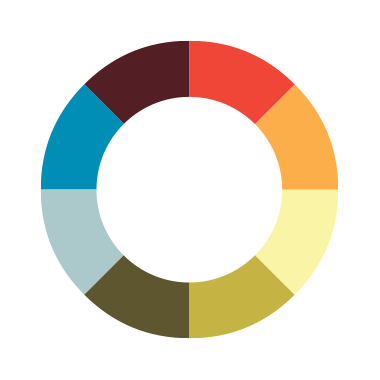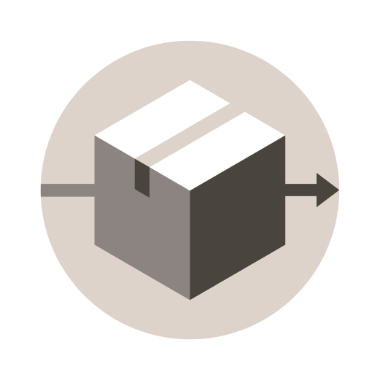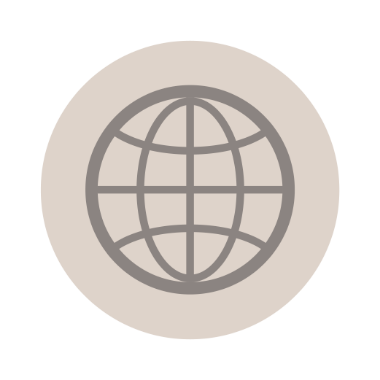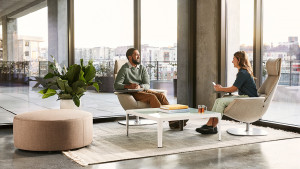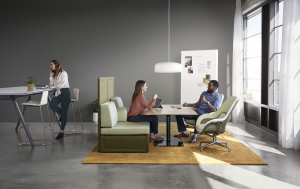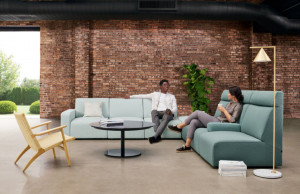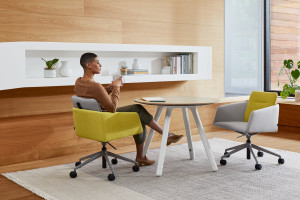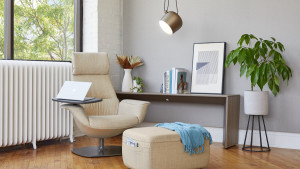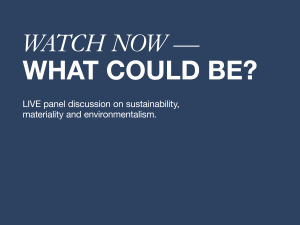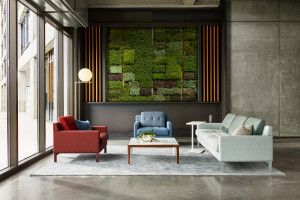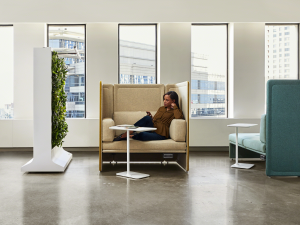Sustainability, Materiality and Environmentalism: A Discussion About What Could Be…
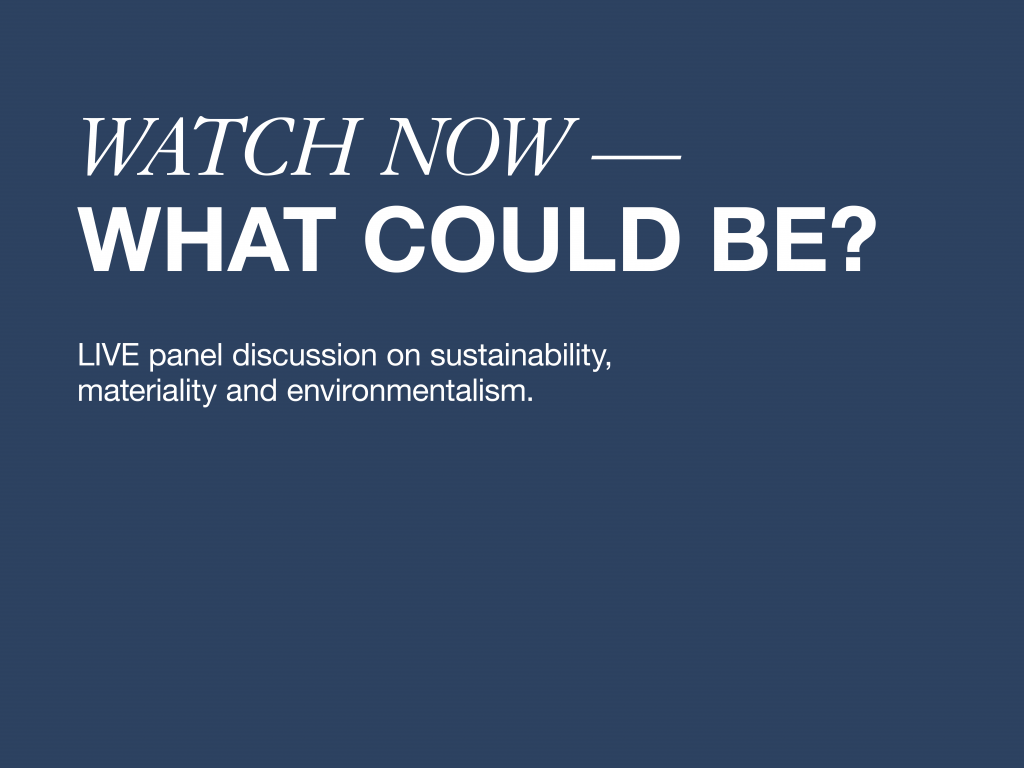
Coalesse recently hosted a panel of visionaries to address the question: “What Could Be?” on the topic of sustainability, materiality and environmentalism. Below we share some key highlights from the discussion, but we encourage you to watch (and be inspired by) the video in its entirety.
Meet our visionaries:
- Moderator: Dr. Andrew Dent, Executive Vice President, Material Research, Material ConneXion
- Panelists:
- John Hamilton, Director of Global Design, Coalesse + Steelcase CMF, Steelcase Brands
- Christine Vandover, Principal and Sr. Project Interior Designer, HOK
- Katie Weeks, Managing Director of Communications and Development, Institute for Market Transformation
- Alison Mears, AIA, LEED AP, Director and Co-Founder, Healthy Materials Lab
1. Individual and Organizational Responsibility:
Both consumers and businesses need to be willing to prioritize sustainability as something we want and something we are willing to pay for. We need to move beyond aspirations and into action.
“[W]e as individuals, and then as organizations, ought to have the willingness to open our pocketbooks up a little bit more, and think about our spending in ways that will encourage and enable [sustainability]… it’s a shift both in individual and corporate mindsets.” – John Hamilton
2. A Shift in Mindset:
The panel agreed that we need to define and expand how we think about sustainability. It not only includes the materials and manufacturing processes behind products and end of life considerations like recycling, but also connects to human health and the health of our planet.
“I think it’s a shift … It’s very much a shift in … social behavior… what we consider to be best practice, or what our expectations are for buildings and materials.” – Katie Weeks
Christina Vandover from HOK gave an example of how their interior design team is addressing sustainability considerations upfront in their design process, allowing them to be more proactive and more purposeful when making product selections.
“I think it’s up to all of us to try to figure out how to embed [sustainability] into our work process on a day-to-day basis.” – Christine Vandover
3. Impact of COVID:
COVID has brought the health of workspaces to the forefront, and workers are now desiring environments that are healthy for them, beyond just ergonomics.
“We really see COVID revealing some of these much more systemic problems … it starts to raise the issue of the health of our interior environments in a way that is helpful, and potentially able to be transformative.” – Alison Mears
4. Supply and Demand:
If consumers and employees are educated about and asking for sustainable products and work environments, companies will want to partner with businesses who help them meet their end users’ needs. The more demand there is, the greater the supply can be of products and processes that value sustainability
“Building a greater audience of people who care about [sustainability] I love because the more people we can get talking about it, the more people that we can get curious and asking questions […] Let’s create a demand for those things … then we’ll have more supply of good things that we can build with.” – John Hamilton
5. Collaboration and Best Practice Sharing:
The entire panel underscored the idea that great benefit and advancement can come from sharing best practices across the industry rather than competing for who “does” sustainability best.
“[How can we] think about co-creating and sharing best practices in order to … help everyone do a better job?” – Christine Vandover
Coalesse’s Hamilton agreed, “[We shouldn’t] try to protect the material as being proprietary … instead saying, ‘I want to give it to the world because it will benefit us all.’”
6. Consider What Already Exists:
Whether it’s being aware of existing infrastructure for recycling, finding new ways to reuse waste, or improving processes – the possibilities for boosting sustainability already exist and may only need innovative ways to leverage them and bring them into normative practice.
“We’ve already got the infrastructure … how do we actually piggyback on some of these existing systems in order to make [sustainability] a lot simpler, a lot more intuitive?” – Dr. Andrew Dent
We believe the way forward is best approached by considering the entire ecosystem – materials, design, production, transportation, installation, use, end-of-life, etc… – and asking, “What Could Be?”
“We were hoping to inspire you, to give you some new ways to think about ‘How could I reframe the problem? How could I challenge the status quo? What could I do individually or collectively to make a difference and make the solution better for the world?’” – Lew Epstein


